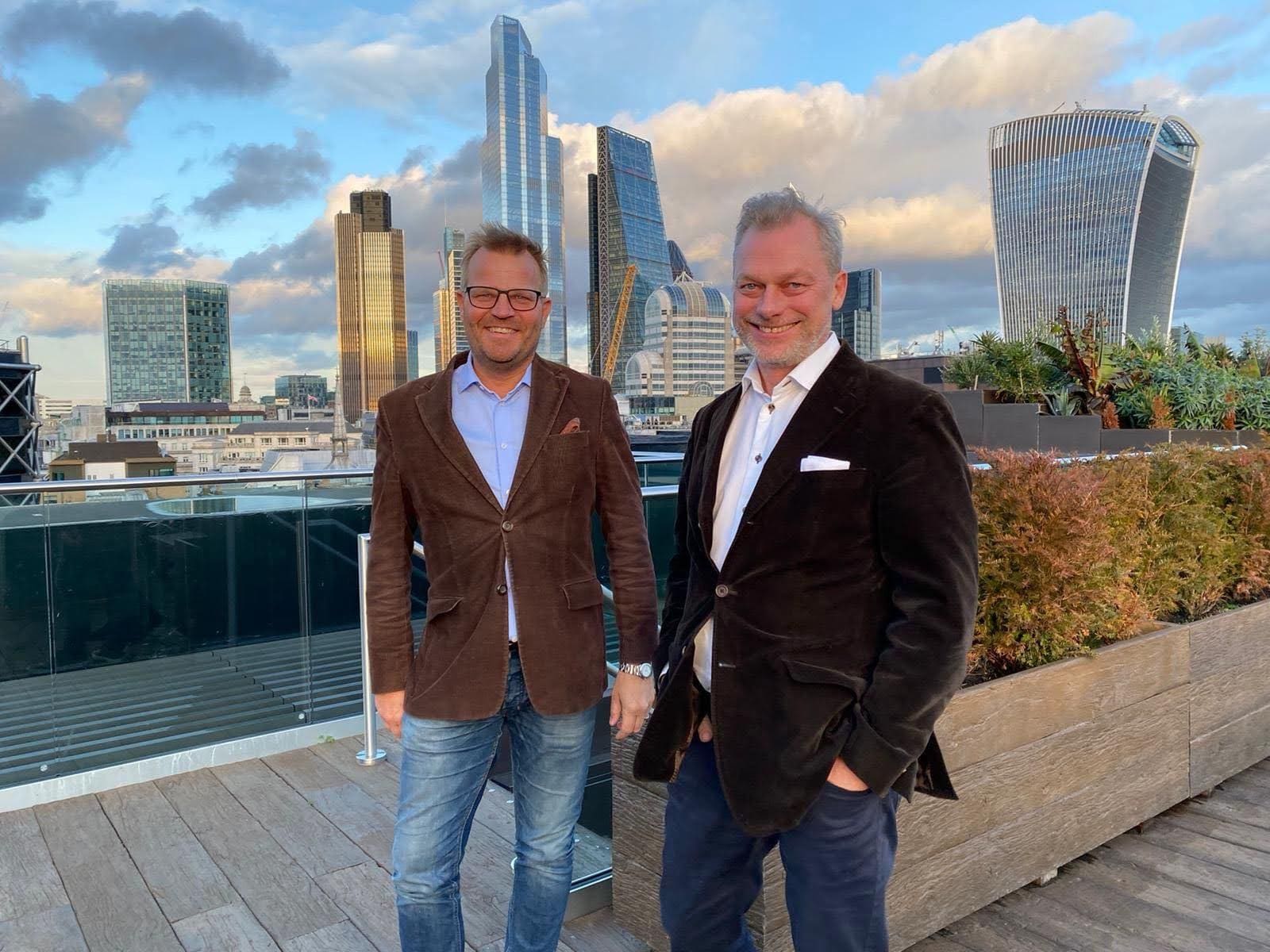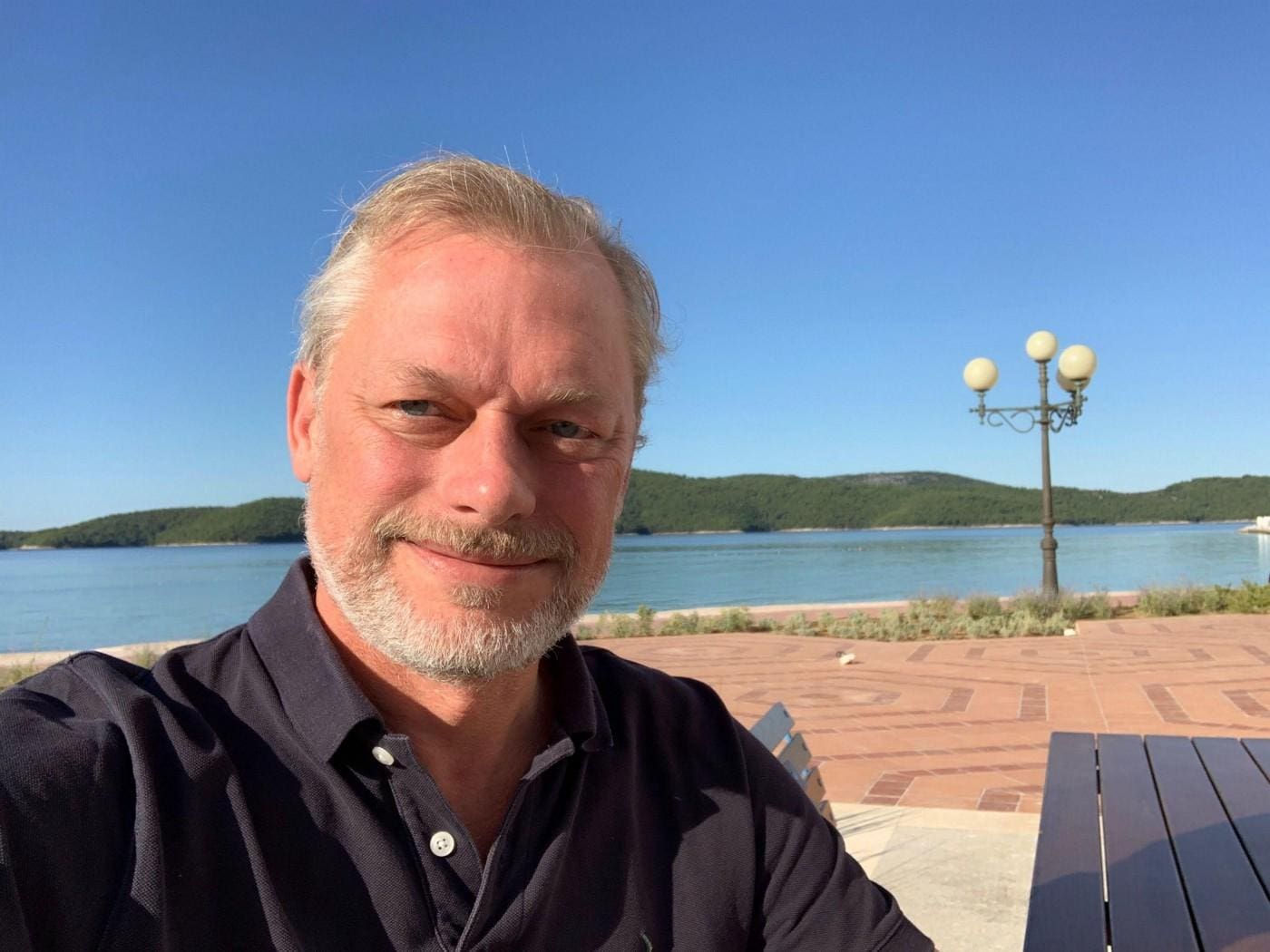
Originally published in Autority Magazine, Thrive Global, and Entrepreneur.com.
“I have personally been close to burning out once. For me, the main reason was not the workload per se, but rather an unclear mandate and expectations. It creates a frustrating dynamic in a team if you do not have a clear mandate. There must be clarity when it comes to responsibilities and expectations. Be clear in communication with the team and create ways to accomplish a goal.”
As part of my series about the “How to Navigate and Succeed in the Modern World of Finance”, I had the pleasure of interviewing Richard Nordin, ex-Managing Director UK at FA Solutions.
A Stockholm University graduate with over 25 years of experience, Richard Nordin is a seasoned expert in FinTech, investing, and automation. Besides in-depth knowledge of financial instruments, such as funds, derivatives, alternative investments, and equities, Richard is adept at modern technology (e.g.machine learning) and how it is used to upgrade wealth management solutions. Serving as Regional.
Managing Director at Focus Investment Group and FA Solutions not only granted Mr. Nordin ample leadership experience but also provided an opportunity to build his own teams and gain insight into essential skills required from young talent to succeed in the ever-changing world of finance.
Thank you so much for your time! I know that you are a very busy person. Our readers would love to “get to know you” a bit better. Can you tell us a bit about your ‘backstory’ and how you got started?
I started out in Stockholm in the early 1990s as a developer with a burning interest in finance. It was possibly the worst time to begin a financial career opportunities-wise — the world was plunged in the deepest recession to date, with banks going into default left and right. In my opinion, the global economy at that time was even grimmer than the post-Lehman crisis.
With next to no jobs available in the financial industry, I decided to sharpen my skills in Machine Learning (ML) at Stockholm University and KTH Royal Institute of Technology. After that, I started building my own expert system for trading decision support based on ML algorithms, completely from scratch. It was myself and one colleague, working purely on enthusiasm. Just a couple of 20-somethings trying to create something worthwhile, making barely enough to pay the rent but loving every minute of the journey. We did eventually productize our solution and even got a dozen local clients, but my colleague dropped out due to health issues, so I stopped developing the algorithm. It’s a shame, really, because I honestly think we were ahead of our time, and that project could’ve been way more successful had we kept investing in it.
Then I moved on to another exciting challenge — helping build the backend of another financial product, however, this time it was treasury management software that was used by some of the largest investors and treasuries in Sweden. That experience helped me realize that I wasn’t a programmer at heart — I longed to learn more about client needs and wanted to truly understand how investors’ problems can be solved with technology. So, I approached the CEO with a request to be moved to sales, and within a year I got a chance to explore this new territory.
Since then, I have been focusing primarily on sales — first selling to hedge funds and the treasury industry in the Nordics and London. That was in the late 90s. Then, after the dot com bubble burst, I joined a US-based fund of hedge funds as a business developer. The business was good and profitable until the Lehman crisis of 2008 hit the economy and wiped out most of the jobs in finance again (including my own). I still remember the shock of seeing the busiest commercial districts of New York turned into ghost towns — much like they are during the current COVID-19 crisis.
I worked with treasury management solutions again for a while after returning to Sweden, where I met my future business partner Robert Wennerström. We started a venture together, and soon after, we merged forces with the Finnish company FA Solutions in 2012, headed by Juha Lehtonen and Hannes Helenius.
We have experienced tremendous growth together ever since. Having started as a small company with just six people, FA now has over 60 people across three international offices (Helsinki, Stockholm, and London), and an average growth rate of over 40% p.a.
Can you share a story about the funniest mistake you made when you were first starting? Can you tell us what lessons or ‘take aways’ you learned from that?
It happened back in the late 90s when I was working on another Fintech for hedge funds. I was just starting out in sales, “dipping my toes” so to speak, and my CEO sent me to an important meeting with one of the biggest hedge funds in the world headquartered in Zurich. Upon arrival, I discovered that the client had asked our CEO lots of preliminary questions to which my manager answered “yes.”
Basically, he oversold our solution without addressing the customer’s concerns, and I had to present the actual software, trying to engage the client as best I could without much background knowledge of hedge funds, given that I was still pretty new to sales.
So, whatever I was doing, it was not working. People kept dropping out of the meeting — they did not see what they were promised. The whole experience was a disaster, and just as I thought it could not get any worse, well, my laptop started burning. I don’t know what exactly happened there, but it overheated, and smoke started coming out. That was just the perfect ending to the perfect demo. Needless to say, the client was not happy.
But this little disaster was definitely a huge learning opportunity for me. I’ve learned how crucial it is to sell what you believe in and understand what exactly you are selling and to whom. Don’t be a “yes” man – really dig into the questions you are getting from the customer and answer thoughtfully, even if you have to say “currently we don’t have this feature” from time to time. The tricky part is to try to understand the assumptions the client makes, but that is another topic. Also, interaction with that client helped me understand what a fund of hedge funds is, and I even worked for one of those later on.

Is there a particular book that you read, or podcast you listened to that really helped you in your career? Can you explain?
There’re a few, but out of the modern books on business strategy, I would definitely recommend “Scaling Silicon Valley Style” by Roland Siebelink and Doug Miller. It’s a solid, inspiring read that showcases the different stages of entrepreneurship in Fintech. The book emphasizes the importance of persistence — even when the going gets rough, you have to keep going. For anyone who has started their own venture, it is inspiring to see someone has successfully navigated through similar situations as you — and this is precisely what “Scaling Silicon Valley Style” provides.
Another good read is “Inside the Tornado” by Geoffrey Moore. A true entrepreneurship classic. The examples and case studies used in that book may seem a bit outdated to some, but they have been hugely relevant for my career, as I was already in the industry when those things happened. The book shows that in business, one must be aggressive but also persistent.
Are you working on any exciting new projects now at FA Solutions? How do you think that will help people?
I am currently establishing FA Solutions in the UK, as we have seen that there is a lot to do to democratize the financial industry here. It is, except for the corona situation, a very fun and exciting project. Our target is to find the right customers and help them become efficient, digitized, and fully compliant with existing and upcoming financial regulations using our solution — the FA Platform. For example, our software streamlines ex-post and ex-ante reporting for MiFID II compliance. The end goal is to enable British wealth managers to remain profitable as well as competitive while still charging end clients less. So, high-quality yet affordable wealth management services — that’s our mission, both in the UK and the rest of the world.
I personally love the UK as a market. Not only is it great fun for me to be back in London, but it’s also a new challenge. FA Solutions is a well-established brand in the Nordics, and now we’re going out of our familiar territory, building our global customer base. Of course, as we already have quite a few clients all over the world, from Africa to the Middle East, we are not building from scratch, but the UK presents its individual requirements to wealth management software.
But what helps is that the United Kingdom is a very homogenous market, unlike the Nordics where each country has its own rules. FA comes from a very techy part of the world, and because Northern Europe is so tech-savvy, the IT sector is fiercely competitive there. So, we figured — if we’ve made it in competitive Nordic tech space, we can make it in the more traditional markets like the UK, which could embrace more digitalization in their processes.
Each market is different, but within Europe, there are also common concerns that all wealth managers are facing, like compliance with MiFID and GDPR, for example. At FA, we have put lots of effort into developing functionality that would help wealth managers stay up to speed with existing and upcoming regulations.
Overall, we don’t wait for any green light to enter new markets. I believe if you are successful in offering your product in the home market, you should not hesitate to enter new territory. There will, of course, be challenges, and the product-market fit is always tricky to get right, but you learn these things by doing — not by waiting for opportunities. You have to create them yourself. And it helps to have a few grey hairs by that point.
Thank you for that. Let’s now shift to the central focus of our discussion. Extensive research suggests that “purpose driven businesses” are more successful in many areas. When you started your company what was your vision, your purpose?
For FA, it’s democratizing wealth management. Our industry has been too manual and inefficient — not enough process-driven. By embracing digitalization, wealth managers can help their employees concentrate on truly challenging, value-adding tasks. Besides, from the long-term perspective, running your business on a more advanced IT platform helps you expand your offering to a broader range of investors. Quality financial services shouldn’t be reserved only for the top 1% — our vision is to make them accessible to everyone.
Additionally, the more you learn about the product you are selling, the more you understand how it fits into the big picture. The holistic perspective allows you to understand the clients’ needs in-depth. You can’t sell with a narrow tech message like “we provide the best API connections” — it’s what effect your product will have on people using it that counts. You need to focus on the benefit from a broader perspective.
There’s still a lot to achieve when it comes to digitizing wealth management services and thus making them more flexible. That is what we’re working on.
Do you have a “number one principle” that guides you through the ups and downs of running a business?
Two years. Always give your venture at least two years. Very few breakthroughs or successes will materialize before two years, whether it is a startup or, as in my case, building up a new market for an established product. Work hard for two years with a clear goal, and good things will happen.
Another important principle for me is to trust people until proven otherwise. That will make your whole career more interesting, rewarding, and sustainable.
Lead generation is one of the most important aspects of any business. Can you share some of the strategies you use to generate good, qualified leads?
Despite being very involved in the digital world, in my case it’s been with Fintech, I know that it is still important to meet people in real life, especially during the early phases. If you have a strong vision, nothing gets it through as well as during a physical meeting. I have, over many years, organized many seminars, and held or been part of hundreds of meetings and demonstrations for various software solutions. In a normal year, I am present at well over 100 prospect and client meetings, and this effort eventually pays off.
If you truly believe in something, the best way to communicate it to others is directly face-to-face. People are still people, even in the digital age. Investing time and energy into meeting them pays off.
It’s not just about getting leads and getting known. To be honest, you are lucky if you find a single qualified lead in 2–3 meetings. Meeting with prospects is about building trust. Very few successful partnerships get built without building trust first. Every meeting hopefully does that, in both ways. Even though we provide 100% cloud-based software, our leads need to know who is behind this solution before they trust us enough to do business with us, and vice versa. The software cannot succeed on its own, it needs strong people behind it and customers that know what they want and how to get there.
If a fellow CEO would ask you for advice about whether to bootstrap or to look for VC capital, how would you help them weigh the pros and cons of that decision?
In the IT industry, Fintech included, bootstrapping is an option — and quite a rewarding one. However, it may slow down your growth, but a lack of liquidity shouldn’t be an issue at the crucial initial stages.
When seeking investment from VCs, it is crucial to find partners who are actively interested in seeing the product succeed. Just having money from investors is not enough — to build the momentum around your idea the fastest, you need a functional business partnership. And the slower you grow, the bigger market share you will give up to your competitors.
In Fintech you see it all the time — a great idea dies just because people hold off on investing in its development. If you don’t adapt fast enough (build the team, enter new markets, etc.), you will be overtaken in this race.
Sometimes VC capital is the only gateway to building the business correctly for growth, in the most scalable way possible, from day one. But even some VCs demand unrealistic growth and returns on investment too fast, putting pressure to prioritize only the commercial aspects. This could lead to developing a solution only well-suited for a single country or a narrow client segment, which is not scalable. So, the key is to have the right focus in mind (scalability) and strong cooperation around it — the vision must be shared among all investors.
What measure do you use to determine the value of a company? What advice would you give to other leaders about how to get an optimal evaluation of their business?
Short answer — its cash flow valuation, compared to the risk-free rate. If the sum of growth + EBIT exceeds 40%, that’s when a business becomes interesting.
But it is also crucial to understand the stickiness of the product. The software must be business-critical — i.e. not easily replaceable. So, the company must be profitable, with a scalable, “sticky” product.
In the early stages, the potential counts as well as the actual cash flow — the potential of the market and the product. How scalable is it?
At the end of the day, you either prioritize fast growth or profitability. Just profitability is of less value if you can’t survive growth. Reinvest your profits into growth, especially at the beginning if you believe your product’s long-term return can beat an alternative investment return. If someone wants to buy your company and you want to sell it, they will make the company profitable — your job is to create something that has the potential to grow and develop further.
What would you advise to a founder who initially went through years of successive growth, but has now reached a standstill. From your experience do you have any general advice about how to boost growth and “restart their engines”?
This happens a lot. In the “Silicon Valley” book I mentioned, there are many examples of companies in this kind of situation. If you stay there, you die. You will have to sell the business while it is still profitable. To avoid it, be proactive. You may need to make uncomfortable changes, like changing the management team. Being at a standstill is dying. If you don’t make changes, you go under. An effective way to break out of a standstill is to expand to new markets — challenge the organization to grow. Dare to step outside of what’s already been done. Target 3–4 “perfect fit” clients in that new market, and put together an experienced task force focused entirely on getting these clients on board. A strong, dedicated team is key. Win the clients over, make them happy. It’s like starting the whole venture all over again, but with your existing entrepreneurship experience and an existing product that hopefully is a good fit for the target market.
What are the most common finance mistakes you have seen other businesses make? What should one keep in mind to avoid that?
One mistake is seeing a great opportunity but not acting. Maybe it’s due to a lack of finance to seize it, or recruiting the right talents, etc. Taking on too much leverage is another side of the same coin — what if the risk doesn’t pay off? Are you willing to risk your company? You can’t avoid taking risks altogether, or you’ll remain at a standstill and eventually fade away. That is the most common mistake. But if you take too much risk, you may do something that will eventually kill the business, e.g., sell the controlling share to the wrong owner. Vet the partners that you bring on board. Don’t leverage too much; don’t leverage too little. Sometimes it is better to issue a bond than to share control with the new owner. But whatever you decide to do, just act. Being too afraid to take risks is the biggest mistake an entrepreneur can make.
Ok, here is the main question of our discussion. Based on your experience and success, what are the five most important things one should know in order to succeed in the modern finance industry? Please share a story or an example for each.
Know more than one side — become the “Renaissance man,” so to speak
The financial business of today is complex and spans across society. You never know what skill or knowledge will be required in 10, 20, 30 years. For example, while in the 80s bond traders were kings, right now, they are not needed at all — if that skill was the only one in your resume, you would go under. Never stop expanding your horizons.
Become international
This is a key thing. Back in the day, the nobles always sent their children to spend some years abroad to learn how the world works, not just their local court. We are lucky to live in a time when this is accessible to most people. Seize this opportunity and if you can, get experience abroad.
Remember that people are still key
Don’t overestimate technology — without the right people, even the best technology will not help you build a successful venture.
Don’t wait too long
It’s better to start doing than keep waiting for the perfect timing/product/presentation etc. Better do once too many. To fail is part of success.
Persistence
Remember — it takes two years (at least) to see results. Don’t hurry. Today, an average career lasts until you are 70. You have time. Be open to making mistakes — keep trying.
Bonus: Do what you like, not where you’ll get the most money in the short-term. You get good at what you like doing. Passion for what you do is a great foundation for a sustainable career.
Which tips would you recommend to your colleagues in your industry to help them to thrive and not “burn out”?
I have personally been close to burning out once. For me, the main reason was not the workload per se, but rather an unclear mandate and expectations. It creates a frustrating dynamic in a team if you do not have a clear mandate. There must be clarity when it comes to responsibilities and expectations. Be clear in communication with the team and create ways to accomplish a goal. I am unfortunately not necessarily very good at that though, but my insight has been to step out of that situation and do what I am best at. Find someone who can replace you after you’re gone as soon as you can, straight from the beginning, so that during your time with the company you can share the work and each concentrate on areas that interest you the most.
If you enjoy what you do, the workload is not normally the reason for burning out. There are often underlying reasons — genetics, family situation, or similar. When you are in the thick of it, it is very hard to get out of a burn out on your own, if not impossible. So, ask for advice, and don’t be too proud to accept help. Often someone from the outside can easily point out the obvious, but that may be invisible to you when you are in the downward spiral. Small things may make a huge difference! What you may think is really important may, in fact, be irrelevant, but you need someone else to point it out, and perhaps help you with the first step. Sometimes it’s just a small thing — a piece of advice or a tip on how to run one of your work processes more efficiently — it goes a long way. You just need to accept it.
You are a person of great influence. If you could start a movement that would bring the most amount of good to the most amount of people, what would that be? You never know what your idea can trigger. :-)
Education. Education for all. Open schools for everyone, and make sure people get to schools that teach objectively. This would make the world a much better place and possibly end many wars, helping people out of misery. But also, in the more developed parts of the world, enables anyone to succeed.
This was very inspiring. Thank you so much for joining us!
About The Author
As Exec. Creative Director, Charlie Katz spearheads the full gamut of creative marketing for Bitbean Software Development in Lakewood, NJ. Charlie has over 20 years experience in major NY and west coast agencies, including Dancer-Fitzgerald-Sample, now Saatchi & Saatchi, D’Arcy-MacManus & Masius, and Wells, Rich Greene. Starting as a junior copywriter and moving up to Exec. Creative Director, he developed creative strategies and campaigns for such clients as Colgate, R.J. Reynolds, KFC, and Home Depot. Along the way he won numerous national and international awards including the NY Advertising Club ‘Andy’.


